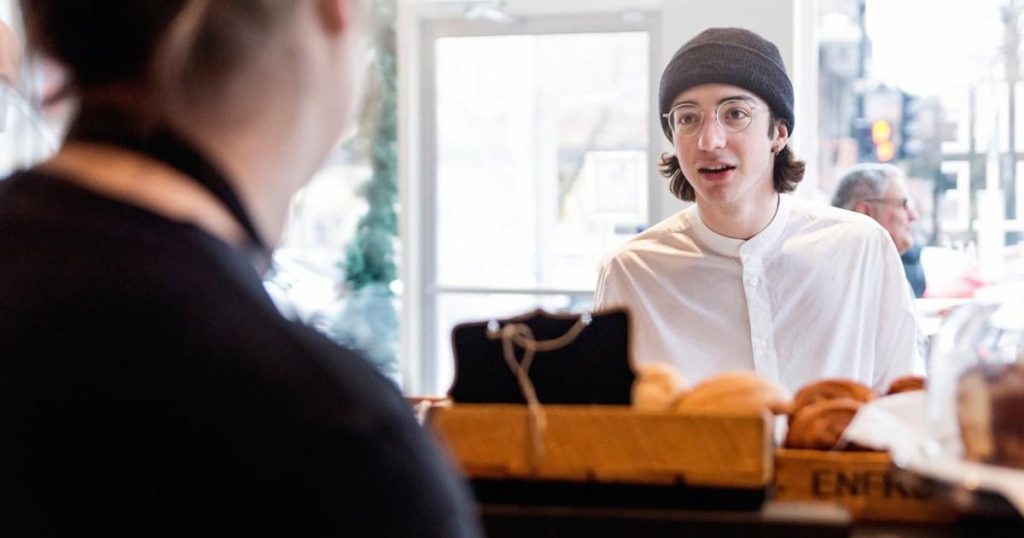Navigating Linguistic Landscapes: British Attitudes Towards Foreign Languages
The complexities of navigating foreign languages abroad have been highlighted in a recent poll of 2,000 British adults, revealing a blend of apprehension, avoidance, and occasional triumph. A significant portion of the respondents, 20%, admitted to never attempting the local language when traveling internationally, preferring the safety of non-verbal communication. A further 53% confessed to pointing at menu items rather than risking mispronunciation, a testament to the anxiety surrounding linguistic blunders. This apprehension is not unfounded. Thirty percent of those surveyed confirmed frequently struggling with foreign pronunciation, a common experience that transcends specific languages and cultures. The survey further identified several culinary culprits, including "gyros," "tagliatelle," and "pho," as particularly challenging for British tongues. The elegance of French vocabulary also presented obstacles, with "rendezvous," "faux pas," and "pain au chocolat" leading the list of troublesome terms. This research, commissioned by St Pierre bakery to coincide with a product launch, underscores the diversity and richness of languages, even as it highlights the challenges they present to non-native speakers. The bakery brand’s spokesperson aptly described mispronunciation as a "relatable struggle," a sentiment likely echoed by many who have ventured beyond their linguistic comfort zones.
The survey didn’t just focus on the struggles; it also explored the surprising linguistic strengths of the British. While grappling with foreign menus might be common, one domain where British linguistic prowess shines is ordering beer. Separate research involving 75,000 Amazon workers in the UK, part of the Chatterbox series, revealed the average Brit can order a beer in three different languages. Furthermore, an impressive 10% of respondents claimed fluency in ordering a pint in five or more languages, a testament to the enduring connection between British culture and this beloved beverage. This linguistic proficiency, particularly in the context of beer, underscores the often-unpredictable ways in which cultural priorities shape language acquisition.
The survey also delved into the specific words that present the greatest challenges for Brits abroad. Beyond exotic cuisine and elegant French phrases, even basic words can prove surprisingly tricky. Words like "fizzy" and "still," essential for ordering beverages, were mispronounced by 38% of respondents. Directional terms, "left" and "right," also caused confusion for 27%, while a quarter of those surveyed stumbled over the polite essentials of "please" and "thank you." While these errors might seem trivial, they highlight the potential for miscommunication even with seemingly simple vocabulary. The fact that even politeness markers proved challenging underscores the nuances of language and the importance of clear articulation.
The survey’s findings provide valuable insights into the anxieties and triumphs of Brits navigating foreign languages. While the fear of mispronunciation and the preference for non-verbal communication are prevalent, the study also reveals an unexpected strength in the context of ordering beer, a culturally significant activity for many Brits. The research also highlights the surprising challenges posed by everyday words, reminding us that even seemingly simple vocabulary can be a source of miscommunication. These combined insights paint a complex picture of the British relationship with foreign languages, marked by both trepidation and unexpected competence.
The research, commissioned by St Pierre bakery, provides a timely reminder of the inherent challenges and occasional humor associated with navigating foreign languages. While pointing at a menu or relying on gestures might seem like a safe approach, embracing the local language, even imperfectly, can enhance travel experiences and foster cross-cultural understanding. The survey’s findings, including the list of frequently mispronounced words, offer a valuable starting point for those seeking to improve their linguistic skills and navigate international interactions with greater confidence. The struggles with words like "hygge," "tzatziki," and "edamame" demonstrate the breadth of culinary influences shaping modern language, while the difficulties with French phrases like "rendezvous" and "faux pas" highlight the enduring presence of French in the lexicon of sophisticated expression.
Ultimately, the survey underscores the importance of approaching language learning with a spirit of humility and humor. The struggles highlighted in the research are not unique to British travelers; they are a universal experience for anyone venturing beyond their linguistic comfort zone. Embracing the inevitable stumbles and celebrating the small victories, like confidently ordering a beer in a foreign tongue, can transform linguistic challenges into opportunities for growth and connection. The findings serve as a reminder that language is not merely a tool for communication; it’s a window into different cultures, a source of both frustration and amusement, and a testament to the human capacity for adaptation and connection in a diverse world.


